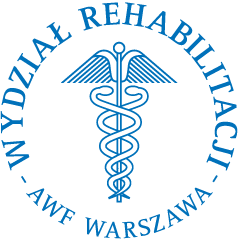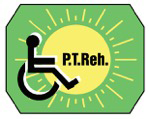


|
Current issue
Archive
Manuscripts accepted
About the journal
Editorial board
Reviewers
Abstracting and indexing
Contact
Instructions for authors
Publication charge
Ethical standards and procedures
Editorial System
Submit your Manuscript
|
1/2023
vol. 37 abstract:
Original article
Clinical and functional results of Optetrack™ Total Knee Arthroplasty after 6 to 13 years: findings from a retrospective study
Luca Falsiroli Maistrello
1, 2
,
Giacomo Rossettini
3
,
Antonino Zambito
4
Advances in Rehabilitation, 2023, 37(1), 40–48
Online publish date: 2023/03/22
View
full text
Get citation
ENW EndNote
BIB JabRef, Mendeley
RIS Papers, Reference Manager, RefWorks, Zotero
AMA
APA
Chicago
Harvard
MLA
Vancouver
Introduction
Total Knee Arthroplasty (TKA) is considered the gold standard in the treatment of knee osteoarthritis and post-traumatic knee deformities. The aim of the study was to report the functional results of a group of Optetrack™ TKA patients over a period between 6 and 13 years after surgery. Material and methods A group of 47 TKA prostheses applied to 39 patients (32 women) were analysed retrospectively. All patients received the same type of TKA and the same rehabilitation program. Patients were assessed before surgery and 3, 6 and 12 months after surgery; follow-ups were performed annually. Assessment was based on Knee Range of Motion (ROM) and a Knee Rating Score (IKS) composed of two partial scores: Knee Score (KS) and Functional Score (FS). The variables influencing the IKS score were identified using a Generalized Linear Model. Results The mean follow-up was 9.95 years (range 6–13). Mean age was 81.2 years (range 62–95). At the last follow-up, the mean IKS score increased from 78.6 (range 15–155) to 145.2 (range 58–200). Mean KS increased from 40.5 (range 0–96) to 85.7 (range 50–100); mean FS increased from 38.9 (range 0–75) to 60.9 (range 0–100). Mean knee ROM increased from 87.6° to 108.4° (range 50°–130°). Preoperative IKS score, male sex and age at surgery were positively correlated to the IKS score at follow-up. Conclusions TKA improved pain score, while the functional score decreased over time. Good preoperative IKS score and male sex were considered good outcome predictors; old preoperative age was considered as unfavourable. keywords:
arthroplasty management, knee rating score, physical therapy, rehabilitation, TKA rehabilitation |
    |